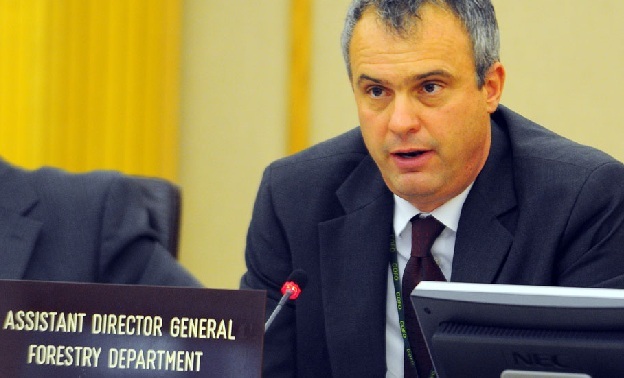As increasing attention is now being given to the benefits of forests and to sustainable forest management, the worst phase of deforestation has already passed, says Eduardo Rojas-Briales. Following the example of success in a number of developing countries, particularly in Asia, he stresses that others will need to work hard over the coming decades to improve their forest services and protect their forest reserves.

Global: What is the Collaborative Partnership on Forests?
Eduardo Rojas-Briales: The CPF has basically two main functions: supporting the international dialogue and negotiations on forest issues in the framework of the UN Forum on Forests; and, second, strengthening cooperation and coordination between the 14 CPF members on forest issues, overcoming duplication of work and joining forces.
Do you foresee the issues around forestry management and sustainability ever becoming more of a political priority, especially in developing countries?
Our information confirms that the worst phase of deforestation, from a global perspective, has passed. Increasing attention will be given to the environmental services offered by forests, the opportunity to restore forest cover and the sustainable supply of key renewable raw material for green building, emerging bio-materials and bio-energy.
At a time when forest plantations are increasing rapidly in many countries, what do you see as necessary to ensure adequate supervision and safeguards against degradation?
If plantations do not directly substitute native forests and are placed in degraded or marginal agricultural land, they can be an excellent complementary source of income for rural populations without affecting biodiversity or food security; on the contrary, they can support both. It is an issue of land use planning and how plantations are designed and managed, and not a matter of principle.
Do you think international bodies and government authorities are making progress in improving land use planning for more rational management of forest resources?
Land use planning is crucial if we want to meet the rising demands of 9 billion people, including a growing middle class, by 2050. Much better land use, including forest landscape restoration, is needed to cope with this challenge. The responsibility lies with countries. Multilateral and bilateral partners can only offer their technical knowledge and resources to strengthen country capacity in this regard. Increasing recognition of the need to approach these challenges from a landscape perspective puts land use planning at the centre of attention.
How best can the in-country capacity of developing countries be enhanced to ensure better forest management?
Capacity-building elements like forest education or extension have received less attention over the past 30 years, especially in Africa. Without skilled personnel at all levels it is impossible to take advantage of the existing potential. Vast afforestation [the planting of trees on previously non-forested land] plans are emerging now in countries with a critical lack of vocational foresters that cannot be improvised. Public forest services, like many other public services, need to evolve with time, overcome monopolistic tendencies, and integrate local communities and small and medium enterprises into forest management.
To what extent are some developing countries already showing the way ahead in forest management, and how likely is it that other countries can and will learn valuable lessons from their experience?
Asia is a paradigm of turning the tide in deforestation. In 20 years, it has turned from a deforesting region to become the leader in forest restoration. But Latin America and Africa too, whilst still deforesting from a regional perspective, include countries that are performing very satisfactorily.
During the past two decades, a negative approach has prevailed which has hindered mobilisation of the action needed. We need to change the strategy and move towards a positive and encouraging strategy based on identifying the champions and the key reasons for their success, and upscaling their experience. This is a much more promising approach.
Are you optimistic that the current rate of deforestation, especially in Africa and Latin America, can be reversed in the near future?
If Asia has been able to do so and if some countries in Africa and Latin America have done so as well, as have Europe and North America previously, there is no reason why it should not also be possible in Africa or Latin America. For sure, inclusive socio-economic development, security, political stability and urbanisation are supportive elements that need to be pushed by a decisive political prioritisation. This can be observed in all the championing countries like Vietnam, China, Costa Rica, Chile, Rwanda, Gambia and others.





